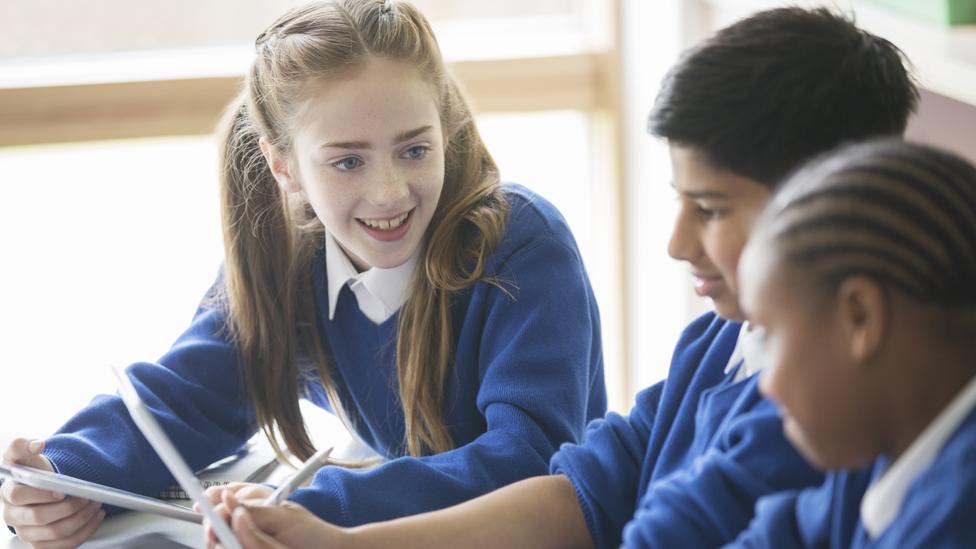Labour promises a more creative mix at school
- Published
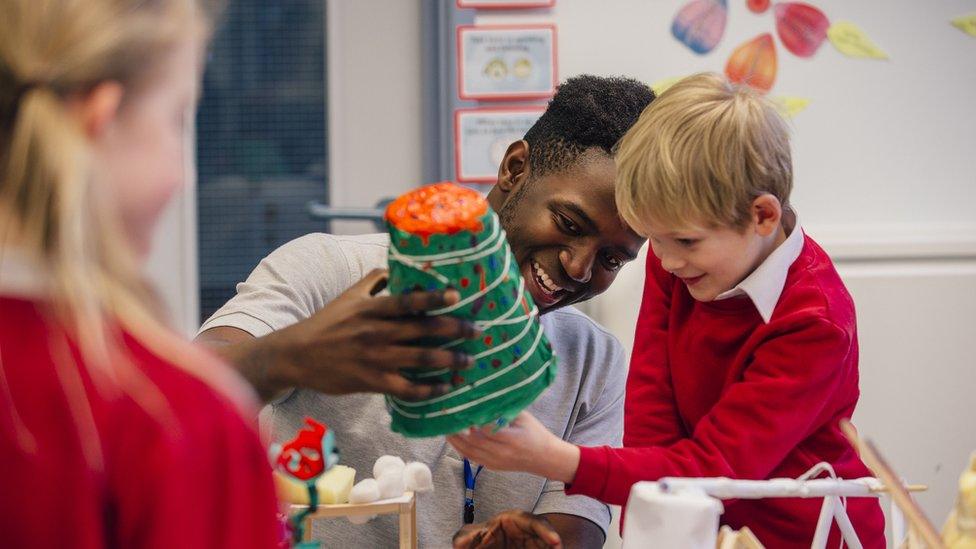
Labour has promised to rewrite the national curriculum, to boost creative subjects in schools
Labour is promising to change the mix of what children learn in England's schools, including creative subjects and sport until the age of 16.
Leader Sir Keir Starmer also promised to "eradicate the snobbery" surrounding vocational education and invest in children's speaking skills.
The ambition he set out faces major challenges as schools grapple with teacher recruitment, budget pressures and the loss of learning and confidence that is the legacy of the pandemic.
After more than a decade in which schools have been pushed to focus on traditional academic subjects, Labour is offering an alternative vision.
The Labour leader deliberately chose to echo a radical Conservative education reformer, Michael Gove, saying Labour would also have no truck with the "soft bigotry of low expectations" for children from low-income families.
While he promised a push on standards, there is, at the heart of this, one of the biggest questions in education.
Does what children learn at school now fully equip them for life in a digital society and a world of work facing rapid disruption through technology?
One of the measures by which government judges schools is how many pupils take the group of academic subjects at GCSE known as the English Baccalaureate.
Last year, 39% of pupils sat exams in this group of subjects,, external which includes:
maths
English
history
geography
sciences
modern foreign languages
But the push for more pupils to study these core subjects has led to concerns creative subjects are being squeezed out of the school timetable.
The Cultural Learning Alliance has pointed to a 40% fall in GCSE entries overall in creative subjects, external during the past decade, including design and technology and film-making.
Some of these subjects offer pupils who do not always perform well elsewhere somewhere to shine.
The feeling these creative subjects are less important than others has led to a crisis in morale among specialist teachers, with recent warnings, in a report, external for an all-party parliamentary group, many of them are considering leaving.
Some fear a crisis in the humanities - last year, English literature fell out of the top 10 most popular A-levels, as fewer students chose it.
And many will see Labour's promise to rewrite what pupils should learn, the national curriculum that guides schools, as a chance to provide a richer and more rewarding education.
So what is missing from Sir Keir's broad vision?
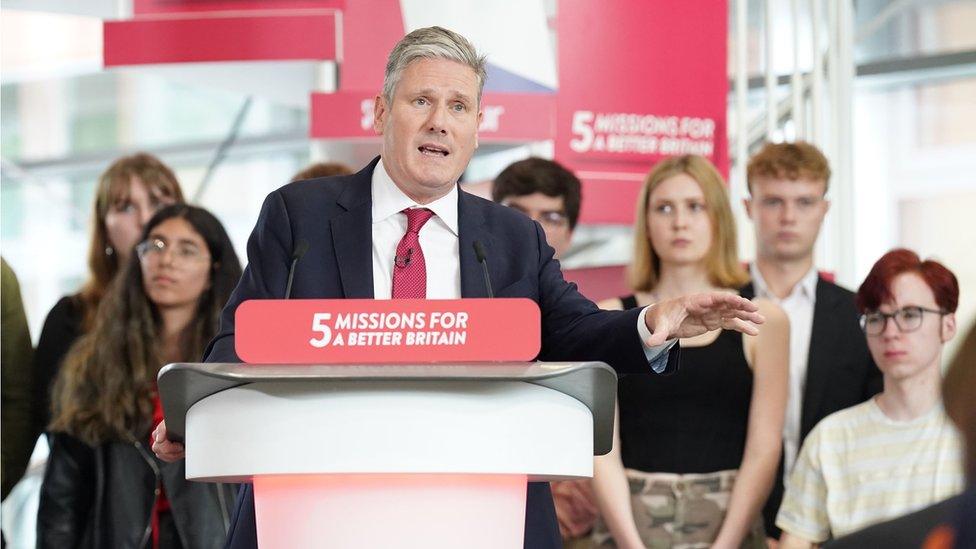
Labour leader Sir Keir Starmer said he wanted to break down barriers to opportunity at every level of education
While he promised a skills levy to boost apprenticeships, more might be hoped for by further-education colleges, which have long seen their funding languish behind schools'.
Under current plans, by 2024, spending on 16-19-year-olds in colleges will be, in real terms, about 5% below that of 2011, independent economists at the Institute for Fiscal Studies have warned.
But the biggest promise of all - no child held back in adult life because of their family background - is the hardest to crack.
Since the pandemic, the education gap between children in poorer communities and the better off has increased, where, before, it had started to narrow.
But Labour has yet to say if it would take some bolder steps to target more resources towards the most disadvantaged.
So it remains unclear whether a Labour government would make free school meals available to more children, or increase the money going into the pupil-premium funding, which schools can use to provide extra learning support but which has not kept up with inflation.
Rising costs
This is a time of profound discontent in England's schools, with all four education unions balloting over strike action on teachers' pay.
A credible leak has suggested the independent pay-review body report will recommend a 6.5% increase, significantly above the current government offer.
Yet Labour politicians, including Sir Keir, refuse to be drawn on whether such a rise is required.
Another unknown is how the Labour Party would treat school budgets in England, which have been through a rollercoaster decade of austerity before partial recovery.
By 2024, the amount spent per pupil in England, once all the rising costs are accounted for, will be only a little more than in 2010.
Labour has set out a different vision for education but without tackling some of the thorniest challenges any government will face.
Related topics
- Published6 July 2023
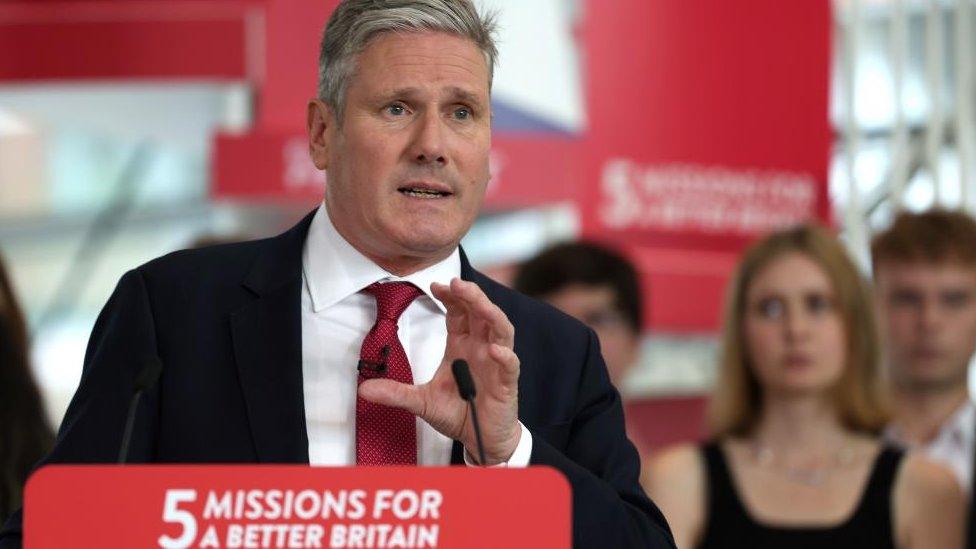
- Published23 February 2023
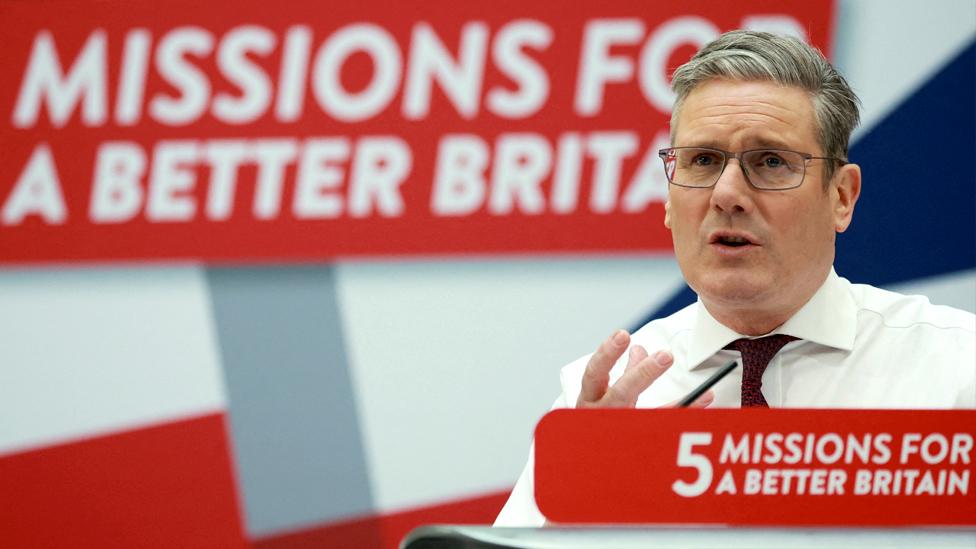
- Published15 April
